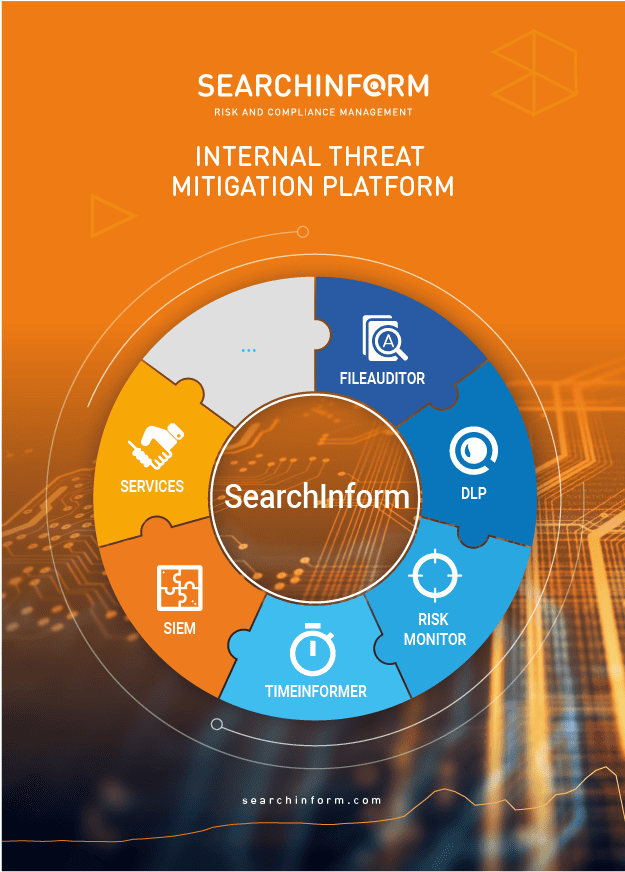Data Protection Issues and How to Address Them
- Understanding Data Protection Issues
- Definition and Importance
- Common Data Protection Challenges
- Regulatory Requirements
- Common Data Protection Issues
- Cyberattacks and Unauthorized Access
- Insider Threats
- Inadequate Data Encryption
- Poor Data Management Practices
- Third-Party Risks
- Regulatory Compliance Gaps
- Lack of Employee Training
- Navigating the Regulatory Landscape of Data Protection Issues
- General Data Protection Regulation (GDPR)
- California Consumer Privacy Act (CCPA)
- Health Insurance Portability and Accountability Act (HIPAA)
- Personal Data Protection Act (PDPA)
- Cross-Border Data Transfer Regulations
- Industry-Specific Regulations
- Addressing Data Protection Issues
- Implementing Robust Security Measures
- Employee Training and Awareness
- Data Access Controls
- Regular Data Backups
- Compliance with Regulatory Standards
- Incident Response Planning
- Data Minimization and Retention Policies
- How SearchInform Solutions Address Data Protection Issues
- Comprehensive Data Loss Prevention (DLP)
- Insider Threat Detection
- Regulatory Compliance Support
- Real-Time Monitoring and Alerts
- Data Encryption and Secure Communication
- User Activity Monitoring
- Incident Response and Forensic Analysis
- Scalability and Customization
Understanding Data Protection Issues
In today's digital era, data protection has become a critical concern for both individuals and organizations. With the increasing amount of personal and sensitive information being collected, stored, and shared, protecting this data from unauthorized access, breaches, and misuse has never been more important. Companies are now more vulnerable than ever to cyberattacks, making robust data protection strategies essential.
Definition and Importance
What exactly is data protection? At its core, data protection refers to the practices, policies, and technologies that safeguard personal and sensitive information from corruption, compromise, or loss. It is important because data breaches can result in severe consequences, including financial loss, reputational damage, and legal repercussions. Ensuring data protection helps maintain customer trust and complies with legal obligations.
Common Data Protection Challenges
Despite its critical importance, many organizations face significant challenges in implementing effective data protection measures. One major issue is the complexity of modern IT environments, which often include a mix of on-premises and cloud-based systems. Additionally, insider threats, whether malicious or accidental, can pose significant risks. Another challenge is keeping up with constantly evolving cyber threats, which require continuous monitoring and adaptation of security practices.
Regulatory Requirements
Regulatory compliance is another key aspect of data protection. Various laws and regulations, such as the General Data Protection Regulation (GDPR) in Europe and the California Consumer Privacy Act (CCPA) in the United States, set stringent requirements for how organizations should collect, store, and handle personal data. Non-compliance can result in hefty fines and legal actions, making it imperative for organizations to stay informed and adhere to these regulations.
Understanding and addressing data protection issues is essential for safeguarding sensitive information and maintaining trust in an increasingly digital world. By recognizing the importance of data protection, navigating common challenges, and adhering to regulatory requirements, organizations can better protect themselves and their customers from the adverse effects of data breaches and cyber threats.
Common Data Protection Issues
Data protection is a landscape fraught with challenges, and navigating it effectively requires awareness and proactive strategies. From sophisticated cyberattacks to simple human errors, the pitfalls are numerous and varied. Understanding the common data protection issues can help organizations better prepare and defend against potential threats.
Cyberattacks and Unauthorized Access
One of the most prominent data protection issues is the ever-evolving landscape of cyberattacks. Hackers continuously develop new methods to bypass security measures, making it a constant battle to stay ahead. Ransomware, phishing, and malware are just a few examples of the tactics employed to gain unauthorized access to sensitive data. Once breached, the repercussions can be devastating, ranging from financial losses to irreparable reputational damage.
Insider Threats
Surprisingly, a significant portion of data protection issues originates from within the organization itself. Insider threats can be malicious, such as an employee intentionally leaking confidential information, or accidental, like an employee unintentionally sharing sensitive data. These threats are particularly challenging to mitigate because they involve individuals who already have legitimate access to the organization's systems and data.
Inadequate Data Encryption
Failing to implement adequate encryption measures is another critical data protection issue. Protecting data in transit and at rest is crucial, and encryption plays a vital role in this process. However, many organizations still fail to encrypt sensitive data, leaving it vulnerable to interception and unauthorized access. Ensuring that all sensitive information is encrypted can significantly reduce the risk of data breaches and unauthorized access.
Poor Data Management Practices
Poor data management practices are a fundamental data protection issue that many organizations struggle with. Failing to regularly update software, not conducting frequent backups, or storing sensitive data in unsecure locations can expose an organization to unnecessary risks. Implementing strong data management protocols is essential to maintaining data integrity and security.
Third-Party Risks
Partnering with third-party vendors introduces additional data protection issues. If these vendors do not have robust data protection measures in place, they can become a weak link in the security chain. It's vital for organizations to thoroughly vet their third-party partners and ensure they adhere to stringent data protection standards to mitigate this issue.
Regulatory Compliance Gaps
Regulatory compliance gaps are significant data protection issues that can have severe consequences. Compliance with data protection regulations is not just a legal requirement but also a critical component of a comprehensive data protection strategy. However, many organizations struggle to keep up with the ever-changing regulatory landscape. Non-compliance can lead to severe penalties and damage to an organization's reputation. Staying informed and implementing necessary measures to comply with relevant regulations is essential to address this issue.
Lack of Employee Training
A lack of employee training presents a major data protection issue. Employees are often the first line of defense against data breaches, yet many organizations overlook the importance of proper training. Without adequate training, employees may fall victim to phishing attacks, mishandle sensitive information, or fail to recognize potential security threats. Regular and comprehensive training programs can empower employees to act as vigilant protectors of data, thereby mitigating this issue.
Understanding common data protection issues is the first step toward building a robust defense strategy. By recognizing the threats posed by cyberattacks, insider risks, inadequate encryption, poor data management, third-party vulnerabilities, regulatory compliance gaps, and lack of employee training, organizations can take proactive measures to protect their sensitive information. Awareness, education, and continuous improvement are key to safeguarding data in today's complex digital landscape.
Navigating the Regulatory Landscape of Data Protection Issues
Navigating the regulatory landscape is a critical aspect of addressing data protection issues. With the rapid proliferation of data, governments and regulatory bodies worldwide have implemented stringent regulations to ensure the protection of personal and sensitive information. Understanding these regulations is essential for organizations to maintain compliance and avoid severe penalties.
General Data Protection Regulation (GDPR)
The General Data Protection Regulation (GDPR) is one of the most well-known and comprehensive data protection regulations globally. Enforced in the European Union (EU) since May 2018, GDPR sets a high standard for data protection and privacy. It mandates that organizations must obtain explicit consent from individuals before collecting their data and provides individuals with the right to access, rectify, and erase their data. Non-compliance with GDPR can result in hefty fines, up to 4% of an organization's annual global turnover or €20 million, whichever is higher. This regulation has set a benchmark for data protection issues worldwide.
California Consumer Privacy Act (CCPA)
On the other side of the Atlantic, the California Consumer Privacy Act (CCPA) has emerged as a significant regulatory framework in the United States. Effective since January 2020, CCPA grants California residents the right to know what personal data is being collected, the purpose of its collection, and with whom it is being shared. It also allows consumers to opt-out of the sale of their personal data. Organizations that fail to comply with CCPA can face fines and legal actions. This regulation addresses data protection issues specific to consumer rights and data transparency.
Health Insurance Portability and Accountability Act (HIPAA)
In the healthcare sector, the Health Insurance Portability and Accountability Act (HIPAA) plays a crucial role in data protection. HIPAA sets national standards for the protection of sensitive patient health information. It requires healthcare providers, insurers, and their business associates to implement robust security measures to ensure the confidentiality, integrity, and availability of electronic protected health information (ePHI). Non-compliance with HIPAA can result in significant penalties and jeopardize patient trust, making it a critical regulation for addressing data protection issues in healthcare.
Personal Data Protection Act (PDPA)
In Asia, the Personal Data Protection Act (PDPA) of Singapore is a comprehensive framework that governs the collection, use, and disclosure of personal data. PDPA aims to protect individuals' personal data while recognizing the need for organizations to use data for legitimate business purposes. It requires organizations to obtain consent, ensure data accuracy, and implement security measures to protect personal data. Non-compliance with PDPA can lead to financial penalties and reputational damage, highlighting the importance of addressing data protection issues in the region.
Cross-Border Data Transfer Regulations
Cross-border data transfer regulations also present significant data protection issues. Many countries have specific requirements for transferring personal data outside their borders. For example, under GDPR, data transfers to non-EU countries are only permitted if the destination country provides an adequate level of data protection or if appropriate safeguards are in place. Similarly, many other jurisdictions have enacted laws to regulate international data transfers. Organizations must navigate these complex regulations to ensure compliance and protect personal data during cross-border transfers.

Industry-Specific Regulations
Various industries have their own specific regulations to address data protection issues. For instance, the Payment Card Industry Data Security Standard (PCI DSS) applies to organizations that handle credit card information. PCI DSS requires stringent security measures to protect cardholder data and prevent data breaches. Compliance with industry-specific regulations is crucial for organizations to maintain the trust of their customers and partners.
The regulatory landscape in data protection issues is diverse and continuously evolving. Organizations must stay informed about relevant regulations such as GDPR, CCPA, HIPAA, PDPA, and cross-border data transfer laws to ensure compliance and mitigate the risks associated with data breaches. By understanding and adhering to these regulations, organizations can protect personal and sensitive information, maintain customer trust, and avoid severe penalties. Awareness, vigilance, and continuous adaptation are key to navigating the complex regulatory landscape in data protection.
Addressing Data Protection Issues
Effectively addressing data protection issues requires a multifaceted approach that encompasses robust security measures, employee training, and compliance with regulatory standards. Organizations must be proactive in identifying potential vulnerabilities and implementing strategies to mitigate risks. By taking comprehensive steps to safeguard data, organizations can protect sensitive information, maintain customer trust, and ensure business continuity.
Implementing Robust Security Measures
Securing data begins with implementing robust security measures. This includes deploying advanced firewalls, intrusion detection systems, and antivirus software to protect against external threats. Encryption is also critical; it ensures that data remains unreadable to unauthorized users both in transit and at rest. Regular security audits and vulnerability assessments help identify and rectify potential weaknesses, ensuring that the organization’s defenses are always up-to-date.
Employee Training and Awareness
Addressing data protection issues is not solely the responsibility of the IT department; it requires the involvement of every employee. Regular training programs are essential to educate staff on the importance of data protection and to equip them with the knowledge to recognize and respond to threats. Employees should be trained on best practices, such as creating strong passwords, recognizing phishing attempts, and securely handling sensitive information. Creating a culture of security awareness within the organization is vital for mitigating risks.
Data Access Controls
Implementing strict data access controls is another key strategy for addressing data protection issues. Organizations should adopt the principle of least privilege, ensuring that employees only have access to the data necessary for their roles. Multi-factor authentication (MFA) adds an additional layer of security by requiring users to verify their identity through multiple means. Regularly reviewing and updating access permissions helps prevent unauthorized access and reduces the risk of insider threats.
Regular Data Backups
Regular data backups are essential for protecting against data loss due to cyberattacks, hardware failures, or other unforeseen events. Backups should be stored securely and tested periodically to ensure data can be restored quickly and accurately. Implementing a comprehensive backup strategy, including off-site and cloud-based backups, provides an additional layer of protection and ensures business continuity in the event of a data breach or disaster.
Compliance with Regulatory Standards
Compliance with regulatory standards is crucial for addressing data protection issues. Organizations must stay informed about relevant regulations such as GDPR, CCPA, HIPAA, and PDPA, and implement necessary measures to comply with these standards. This includes obtaining explicit consent for data collection, providing individuals with access to their data, and ensuring data accuracy and security. Non-compliance can result in severe penalties and damage to an organization’s reputation, making adherence to regulatory standards essential.
Incident Response Planning
Having a robust incident response plan in place is critical for addressing data protection issues. An effective incident response plan outlines the steps to be taken in the event of a data breach, including identifying the breach, containing the damage, and notifying affected individuals and regulatory authorities. Regularly testing and updating the incident response plan ensures that the organization is prepared to respond swiftly and effectively to any data protection incidents, minimizing the impact on the organization and its stakeholders.
Data Minimization and Retention Policies
Implementing data minimization and retention policies is an effective strategy for addressing data protection issues. Organizations should only collect and retain the data necessary for their operations and for as long as required by law or business needs. Regularly reviewing and securely disposing of unnecessary data reduces the risk of data breaches and ensures compliance with data protection regulations. By minimizing the amount of data stored, organizations can better protect sensitive information and reduce their exposure to potential threats.
Addressing data protection issues requires a comprehensive and proactive approach. By implementing robust security measures, providing employee training, enforcing strict data access controls, maintaining regular data backups, ensuring compliance with regulatory standards, developing an incident response plan, and adopting data minimization and retention policies, organizations can effectively safeguard sensitive information. These strategies not only protect against data breaches and cyber threats but also help maintain customer trust and ensure business continuity in today’s complex digital landscape.
How SearchInform Solutions Address Data Protection Issues
In the ever-evolving landscape of data protection, leveraging advanced technologies is crucial for safeguarding sensitive information. SearchInform offers a suite of solutions designed to address various data protection issues, providing organizations with comprehensive tools to enhance security, ensure compliance, and mitigate risks. Here’s how SearchInform solutions can benefit your organization in tackling data protection challenges.
Comprehensive Data Loss Prevention (DLP)
One of the standout features of SearchInform is its robust Data Loss Prevention (DLP) capabilities. DLP solutions are designed to detect and prevent unauthorized attempts to access, transmit, or use sensitive data. By monitoring and controlling data flows, SearchInform helps organizations safeguard confidential information from both internal and external threats. This comprehensive approach to DLP ensures that sensitive data remains secure, significantly reducing the risk of data breaches.
Insider Threat Detection
Insider threats are a significant data protection issue that many organizations face. SearchInform excels in identifying and mitigating these risks through advanced monitoring and behavioral analysis. By keeping tabs on user activities and detecting unusual patterns, SearchInform can quickly identify potential insider threats. This allows for timely intervention, preventing data breaches caused by malicious or negligent insiders.
Regulatory Compliance Support
Compliance with data protection regulations is a critical concern for organizations across various industries. SearchInform solutions are designed to help organizations meet the stringent requirements of regulations such as GDPR, CCPA, HIPAA, and others. The software provides tools for data classification, access control, and audit trails, enabling organizations to demonstrate compliance and avoid costly fines and legal repercussions. By automating compliance processes, SearchInform saves time and resources while ensuring adherence to regulatory standards.
Real-Time Monitoring and Alerts
SearchInform offers real-time monitoring and alerting capabilities that are essential for addressing data protection issues promptly. The solution continuously scans for potential threats and suspicious activities, providing immediate notifications to security teams. This real-time insight allows for rapid response to emerging threats, minimizing the potential impact of data breaches. The ability to act swiftly is crucial in today’s fast-paced digital environment, where delayed responses can result in significant damage.
Data Encryption and Secure Communication
Encryption is a cornerstone of data protection, and SearchInform provides robust encryption solutions to secure data both in transit and at rest. By encrypting sensitive information, the software ensures that even if data is intercepted, it remains unreadable and unusable to unauthorized parties. Additionally, SearchInform facilitates secure communication channels, protecting data exchanged within and outside the organization. These encryption capabilities are vital for maintaining the confidentiality and integrity of sensitive information.
User Activity Monitoring
Understanding how employees interact with data is key to addressing data protection issues. SearchInform’s user activity monitoring tools provide detailed insights into user behavior, including access patterns, file usage, and communication habits. By analyzing this data, organizations can identify potential vulnerabilities and take corrective actions. User activity monitoring not only helps in detecting insider threats but also in enforcing data protection policies and educating employees on best practices.
Incident Response and Forensic Analysis
In the event of a data breach, having a robust incident response plan is crucial. SearchInform solutions offer comprehensive incident response and forensic analysis tools to help organizations manage and investigate data breaches effectively. The software provides detailed logs and reports, enabling security teams to trace the source of the breach, assess the extent of the damage, and implement corrective measures. This forensic capability is essential for learning from incidents and preventing future occurrences.
Scalability and Customization
SearchInform solutions are designed to be scalable and customizable, meeting the unique needs of organizations of all sizes and industries. Whether you are a small business or a large enterprise, SearchInform can tailor its solutions to fit your specific data protection requirements. This flexibility ensures that you can implement the right level of security measures without overburdening your resources, making it a cost-effective choice for comprehensive data protection.
SearchInform solutions offer a wide array of benefits in addressing data protection issues. From robust DLP and insider threat detection to regulatory compliance support and real-time monitoring, these tools provide comprehensive protection for sensitive information. By leveraging SearchInform’s advanced technologies, organizations can enhance their security posture, ensure compliance, and mitigate the risks associated with data breaches and cyber threats. Implementing SearchInform solutions is a strategic move towards safeguarding your organization’s data in today’s complex digital landscape.
Ready to enhance your organization's data protection strategy? Discover how SearchInform solutions can safeguard your sensitive information and ensure compliance with regulatory standards. Contact us today to learn more and schedule a demo.
Full-featured software with no restrictions
on users or functionality
Company news
SearchInform uses four types of cookies as described below. You can decide which categories of cookies you wish to accept to improve your experience on our website. To learn more about the cookies we use on our site, please read our Cookie Policy.
Necessary Cookies
Always active. These cookies are essential to our website working effectively.
Cookies does not collect personal information. You can disable the cookie files
record
on the Internet Settings tab in your browser.
Functional Cookies
These cookies allow SearchInform to provide enhanced functionality and personalization, such as remembering the language you choose to interact with the website.
Performance Cookies
These cookies enable SearchInform to understand what information is the most valuable to you, so we can improve our services and website.
Third-party Cookies
These cookies are created by other resources to allow our website to embed content from other websites, for example, images, ads, and text.
Please enable Functional Cookies
You have disabled the Functional Cookies.
To complete the form and get in touch with us, you need to enable Functional Cookies.
Otherwise the form cannot be sent to us.

Subscribe to our newsletter and receive a bright and useful tutorial Explaining Information Security in 4 steps!

Subscribe to our newsletter and receive case studies in comics!







